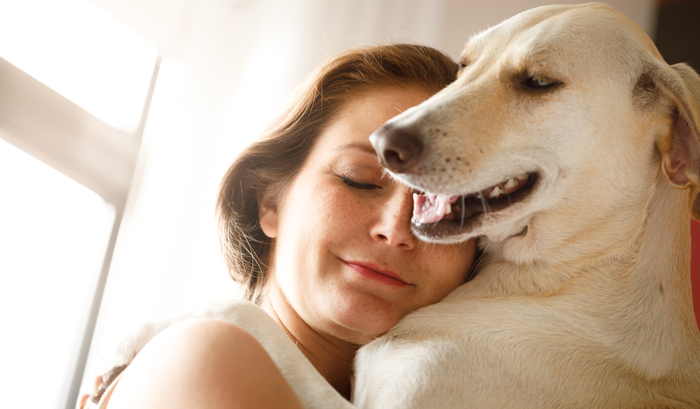A lot has changed over the past year. And as different as it’s been for us, it’s important to remember that our pets have had to adjust to a new normal too.
In June of 2020, Stanford economist Nicholas Bloom estimated that 42% of the U.S. labor force was working remotely. But as millions of Americans have adjusted to working from home during the COVID-19 pandemic, they’ve had to learn how to coexist with their new four-legged co-workers.
Now, after over a year of research and testing, COVID-19 vaccines being distributed throughout the country and millions of people are returning to the office.
Much like humans, animals are creatures of habit. Often times they will act out if something disrupts their routine. So how can you know if your pet is having a hard time adjusting to you going back to the office?
Know what to look for.
Not every cat or dog will develop symptoms of separation anxiety, but if they do, here are a few behaviors you should look out for:
- inappropriate eliminations (urination and/or defecation)
- increased vocalizations
- destructive behavior
- excessive grooming
- pre-departure stress/exuberant greeting
Find your pet’s comfort zone.
If you think your pet is having trouble adjusting to you being gone for longer periods of time, try creating a comfy space for them to relax while you are away. Soft blankets, pillows, or even a pet bed can help them feel safe and comfortable when their favorite person (or people) are out for the day.
Leaving the television on or playing soft music has also been shown to help pets relax.
Enrichment is key.
In addition to keeping your pet cozy throughout the day, you should also be giving them enough mental stimulation to keep them busy. Leaving them a few pet toys can help reduce the chances of coming home to a series of destroyed belongings.
It’s important to take into consideration your pet’s age, size, and even breed when selecting toys. For example, schnauzers are notorious chewers, and therefore may prefer a nice chewy Kong toy.
Hire an expert.
Sometimes an animal’s behavioral issues can have a physical cause. If your pet has recently developed some new and unwelcome habits, it may be worth visiting a vet.
Depending on your pet’s behaviors, symptoms, age, and breed, your vet may run some diagnostic tests to rule out any problems your pet may be experiencing. If the vet concludes that your pet is experiencing separation anxiety, he or she may be able to suggest other ways to help your pet cope with your absence – such as giving them calming treats, specific toys, or even medication.
Interested in a discounted pet insurance policy? Visit our pet insurance page to learn more about this member benefit.

